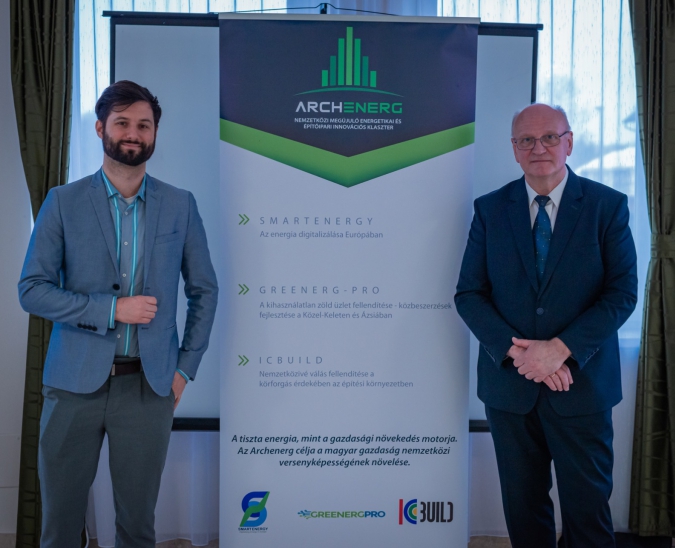
The Archenerg Cluster is a non-profit organisation dedicated to improving energy efficiency and promoting sustainable development in the region. Its members include universities, research institutes, small and medium-sized enterprises and municipalities.
During the renewal meeting, the participants were informed about the details of the Hungarian Cluster Strategy and the objectives to be achieved. The strategy aims to increase the competitiveness of Hungarian clusters and boost the Hungarian economy. Closer cooperation between clusters is a priority to achieve common goals.
The new board's main task will be to develop the new operational principles of the Cluster by mid-year and to successfully qualify the Cluster by preparing a specific strategy. It will also give priority to broadening cooperation and linking business and academia.
The meeting provided an opportunity to network and explore future cooperation opportunities with the IKOSZ and other experts representing clusters at national level. Prof. Dr. István Bíró, Dean of the Faculty of Engineering of the University of Szeged, emphasized during the renewal that he will work to reward the vote of confidence and do his best to achieve success. He stressed that he is already focusing on business cooperation in his faculty leadership programme and is pleased to be able to work for broader and closer cooperation not only in academia but also with cluster members and businesses in the market.
In his nominating speech, Dr. Gyula Nagy said that in addition to education, his daily task is to coordinate the different actors within the project, so in his new position as vice-president he is also happy to take on the tasks related to opening up the cluster to the scientific sector and regional development actors. He underlined that education research, education policy and education innovation play an important role in the life of clusters, because the cluster itself is a learning organisation that needs to be on a continuous path of renewal, so the synergy between the SZTE and the cluster can be strengthened in the future.
The new president and vice-president both see it as a good opportunity for SZTE to build a close partnership with the members of the cluster, which has more than 70 members, in the short term. This is also advantageous, as SZTE intends to place more emphasis on market engagement and corporate networking in parallel with the transition to a foundation.
Ádám Kovács-Jerney
